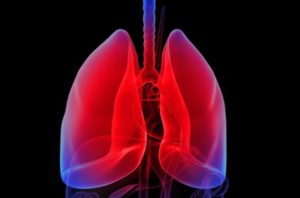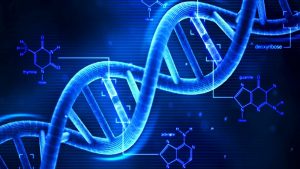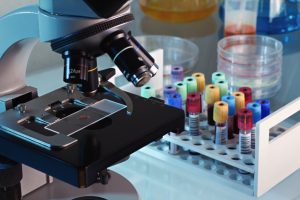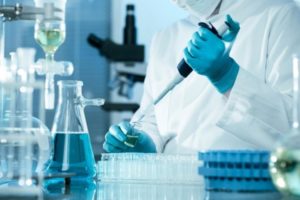Pulmonary Arterial Hypertension (PAH)
Bay Biosciences provides high quality, clinical grade bio-samples, cryogenically preserved tissue samples, sera (serum), plasma and peripheral blood mononuclear cells (PBMC) biofluid specimens from patients diagnosed with Pulmonary Arterial Hypertension (PAH) disease.
The sera (serum), plasma and peripheral blood mononuclear cells (PBMC) biofluid samples are processed from patient’s peripheral whole-blood using customized collection and processing protocols. The Pulmonary Arterial Hypertension (PAH) disease bio-specimens are collected from unique patients diagnosed with from Pulmonary Arterial Hypertension (PAH) disease and are provided to a valued pharmaceutical customer for research, diagnostics, development and drug discovery.

Pulmonary Arterial Hypertension (PAH) Overview
Pulmonary arterial hypertension (PAH) is a rare, progressive disorder characterized by high blood pressure (hypertension) in the arteries of the lungs (pulmonary artery) for no apparent reason. The pulmonary arteries are the blood vessels that carry blood from the right side of the heart through the lungs. Normal pulmonary artery pressure is 8-20 mm Hg at rest. Pulmonary arterial hypertension is defined as a mean pulmonary arterial pressure greater than 25 mm Hg at rest or 30 mm Hg during physical activity.
In pulmonary arterial hypertension (PAH) disease, the blood vessels (tiny arteries) in the lungs are narrowed, blocked or destroyed. The damage slows blood flow through the lungs, and blood pressure in the lung arteries rises. The heart must work harder to pump blood through the lungs. The extra effort and pressure eventually causes the heart muscle to become weak and fail. This can lead to heart failure.
Symptoms of PAH include shortness of breath (Dyspnea) especially during exercise, chest pain, and fainting episodes. The exact cause of PAH is unknown and there is no known cure for the disease, treatment can help reduce symptoms and improve quality of life. PAH usually affects women between the ages of 30-60. Individuals with PAH may go years without a diagnosis, either because their symptoms are mild, nonspecific, or only present during demanding exercise. The progressive nature of this disease means that an individual may experience only mild symptoms at first, but will eventually require treatment and medical care to maintain a reasonable quality of life. Progressive increase in pulmonary vascular resistance ultimately leads to right ventricular heart failure and death.
Approximately 20% of patients with PAH have heritable (inherited disorder) forms of PAH. People with heritable PAH have either:
1). An autosomal dominant genetic condition associated with mutations in the BMPR2 gene or other recently identified genes now associated with Heritable pulmonary arterial hypertension (HPAH) or other forms of pulmonary arterial hypertension (PAH) or associated conditions such as pulmonary capillary hemangiomatosis or pulmonary veno-occlusive disease, or
2). are members of a family in which pulmonary arterial hypertension (PAH) is known to occur as primary disease.
Pulmonary Arterial Hypertension (PAH) Signs and Symptoms
The signs and symptoms of pulmonary hypertension develop slowly, symptoms get worse as the disease progresses. PAH symptoms are those that are usually due to not having enough oxygen in the blood. In most cases, the initial symptom is severe shortness of breath following exertion. Additional symptoms include excessive fatigue, weakness, chest pain, dizziness spells, and fainting episodes.
Pulmonary Arterial Hypertension (PAH) symptoms include:
- Shortness of breath (Dyspnea), initially while exercising and eventually while at rest
- Cough, with blood (hemoptysis)
- Fatigue
- Low blood pressure (hypotension)
- Palpitations (increased heartbeat)
- Dizziness or fainting spells (syncope)
- Chest pressure or pain
- Enlarged heart (hypertrophy)
- Swelling (edema) in ankles, legs and eventually in the abdomen (ascites)
- Bluish color to your lips and skin (cyanosis)
- Racing pulse or heart palpitations
Pulmonary Arterial Hypertension (PAH) Causes
The exact cause of pulmonary arterial hypertension (PAH) is unknown. Researchers believe that injury to the layer of cells that line the small blood vessels of the lung, causing or in concert with changes in the smooth muscle cells in the vessel wall, initiates blood vessel disease. This injury, which occurs for unknown reasons, results in the contraction of smooth muscle and therefore narrows the vessel. These changes in the cells that line the pulmonary arteries can cause the walls of the arteries to become stiff, swollen and thick. These changes may slow down or block blood flow through the lungs, causing pulmonary hypertension.
Pulmonary Arterial Hypertension (PAH) Causes include:
- A genetic mutation passed down through families (heritable pulmonary arterial hypertension)
- Use of some prescription diet drugs or illegal drugs such as methamphetamines, and other drugs
- Heart problems present at birth (congenital heart disease)
- Other conditions, such as connective tissue disorders (scleroderma, lupus, others), HIV infection or chronic liver disease (cirrhosis)
Pulmonary Arterial Hypertension (PAH) Genetics
Approximately 15-20% of patients with pulmonary arterial hypertension (PAH) have heritable PAH, which is an autosomal dominant genetic condition caused by mutations in the BMPR2 gene, which is the gene encoding bone morphogenetic protein receptor type 2, a member of the transforming growth factor-β (TGF-β) superfamily. It is now well established that around 70–80% of families with PAH and 10–20% of IPAH cases are caused by mutations in BMPR2 gene. Dominant genetic disorders occur when only a single copy of an abnormal gene is necessary for the appearance of the disease. The abnormal gene can be inherited from either parent, or can be the result of a new mutation in the affected individual. Approximately 80% of individuals who have a mutated (abnormal) BMPR2 gene will not develop PAH, so other genes or environmental triggers must be necessary for PAH to develop. The risk of passing the abnormal gene from parent to offspring is 50% for each pregnancy and the risk is the same for males and females. In addition to bone morphogenetic protein receptor type 2 (BMPR2) and eukaryotic translation initiation factor 2 alpha kinase 4 gene (EIF2AK4), other known heritable PAH mutations are ALK1, SMAD9, caveolin 1 and KCNK3 mutations.

Pulmonary Arterial Hypertension (PAH) Risk Factors
Following factors can increase the risk of pulmonary hypertension include:
- A family history of Pulmonary Arterial Hypertension (PAH)
- Being overweight
- Blood-clotting disorders or a family history of blood clots in the lungs
- Exposure to Asbestos
- Genetic disorders, including congenital heart disease
- Living at a high altitude
- Use of certain weight-loss drugs
- Use of illegal drugs such as cocaine
- Use of selective serotonin reuptake inhibitors (SSRIs), used to treat depression and anxiety
Pulmonary Arterial Hypertension (PAH) Complications
Complications of pulmonary arterial hypertension (PAH) include:
- Right-sided heart enlargement and heart failure (cor pulmonale): In cor pulmonale, the heart’s right ventricle becomes enlarged and has to pump harder than usual to move blood through narrowed or blocked pulmonary arteries. At first, the heart tries to compensate by thickening its walls and expanding the chamber of the right ventricle to increase the amount of blood it can hold. But these changes create more strain on the heart, and eventually the right ventricle fails. Heart failure is common in pulmonary hypertension.
- Blood Clots: Having pulmonary hypertension makes it more likely to develop clots in the patients tiny arteries in the lungs, which is dangerous if they already have narrowed or blocked blood vessels.
- Arrhythmia: Pulmonary hypertension can cause irregular heartbeats (arrhythmias), which can lead to a pounding heartbeat (palpitations), dizziness or fainting. Certain arrhythmias can be life-threatening.
- Bleeding in the lungs: Pulmonary hypertension can lead to life-threatening bleeding into the lungs and coughing up blood (hemoptysis).
- Pregnancy Complications: Pulmonary hypertension can be life-threatening for a woman and her developing baby.

Bay Biosciences is a global leader in providing researchers with high quality, clinical grade, fully characterized human tissue samples, bio-specimens and human bio-fluid collections from cancer (tumor) tissue, cancer sera (serum), cancer plasma, cancer PBMC and human tissue samples from most other therapeutic areas and diseases.
Bay Biosciences maintains and manages it’s own bio-repository, human tissue bank (biobank) consisting of thousands of diseased samples (specimens) and from normal healthy donors available in all formats and types. Our biobank procures and stores fully consented, deidentified and institutional review boards (IRB) approved human tissue samples and matched controls.
All our human human tissue collections, human specimens and human bio-fluids are provided with detailed samples associated patient’s clinical data. This critical patient’s clinical data includes information relating to their past and current disease, treatment history, lifestyle choices, biomarkers and genetic information. Patient’s data is extremely valuable for researchers and is used to help identify new effective treatments (drug discovery & development) in oncology, other therapeutic areas and diseases. This clinical information is critical to demonstrate their impact, monitor the safety of medicines, testing & diagnostics, and generate new knowledge about the causes of disease and illness.
Bay Biosciences banks wide variety of human tissue samples and biological samples including cryogenically preserved -80°C, fresh, fresh frozen tissue samples, tumor tissue samples, FFPE’s, tissue slides, with matching human bio-fluids, whole blood and blood derived products such as serum, plasma and PBMC’s.
Bay Biosciences is a global leader in collecting and providing human tissue samples according to the researchers specified requirements and customized, tailor made collection protocols. Please contact us anytime to discuss your special research projects and customized human tissue sample requirements.
Bay Biosciences provides human tissue samples (human specimens) from diseased and normal healthy donors; including peripheral whole-blood, amniotic fluid, bronchoalveolar lavage fluid (BAL), sputum, pleural effusion, cerebrospinal fluid (CSF), serum (sera), plasma, peripheral blood mononuclear cells (PBMC’s), saliva, Buffy coat, urine, stool samples, aqueous humor, vitreous humor, kidney stones, renal calculi, nephrolithiasis, urolithiasis and other bodily fluids from most diseases including cancer. We can also procure most human bio-specimens and can do special collections and requests of human samples that are difficult to find. All our human tissue samples are procured through IRB approved clinical protocols and procedures.
In addition to the standard processing protocols Bay Biosciences can also provide human plasma, serum, PBMC bio-fluid samples using custom processing protocols, you can buy donor specific sample collections in higher volumes and specified sample aliquoting from us.
Bay Biosciences also provides human samples from normal healthy donors, volunteers, for controls and clinical research, contact us Now.
日本のお客様は、ベイバイオサイエンスジャパンBay Biosciences Japan またはhttp://baybiosciences-jp.com/contact/までご連絡ください。



